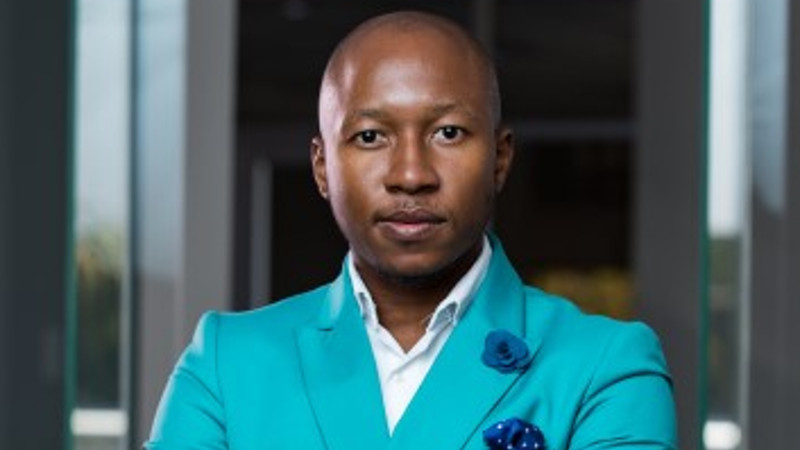In a move that signals a major leap forward in generative AI, OpenAI has quietly rolled out ChatGPT-5, its most advanced model to date….
How is MyGrowthFund’s Top40 mentorship programme faring? We talk to participants

It’s been a couple of months since venture capitalist Vusi Thembekwayo announced the 40 high-growth entrepreneurs who had been selected to join the MyGrowthFund Top40 programme.
The 18-month long mentorship initiative aims to nurture and assist participants scale their businesses. We look at how the programme is faring.
Three-phase programme
MyGrowthFund’s Top40 programme consists of three main phases. These include the needs analysis phase, strategy formulation phase and the final phase which entails “aggressive transformation” of the business.
During the first phase of the mentorship programme MyGrowthFund conducts needs analyses and deep-dives into the participant’s enterprises to “identify critical issues and what needs to be done to remedy those issues,” MD Boitumelo Mofikoe (pictured above) told Ventureburn.
This ensures that “the entrepreneurs’ businesses grow on a solid foundation”.
“We have resolved most of the critical issues that stifle growth and, now we’re in the second phase of the program, which is the strategy phase. MyGrowthFund business analysts are working with each entrepreneur in refining their growth strategy.”
MyGrowthFund’s Top40 18-month long mentorship programme will cost participating entrepreneurs R10 000 a month
Each of the three phases consist of regular mentorship sessions.
“At the end of each phase, we evaluate the performance of each business to identify whether the business is still on a growth trajectory and take remedial action if there little or no growth,” Mofikoe said.
On completing the three phases and once MyGrowthFund is satisfied with the entrepreneur’s performance metrics, successful participants then exit the programme.
“Businesses that are still showing little to no growth remain on the programme for a further six months, where we pursue a change in strategy and then re-implement,” he added.
Ventureburn talks to the participants
No funding upfront
Although R18-million has been invested in MyGrowthFund “to capacitate the team developing entrepreneurs”, Mofikoe said participants don’t receive funding upfront as “that is not the objective of the programme”.
“However, the businesses that need funding to scale would be funded, should there be a funding need. None of the businesses have been funded as yet. We are in the due diligence stage with the businesses that need funding,” he said.
Not for free
The programme is not free, participants have to pay R10 000 a month.
Ventureburn has since learnt that at least two of the 40 participants have since left the initiative because of the programme’s fees.
When asked for comment, Mofikoe confirmed that some entrepreneurs had left the programme.
“Currently, there are 30 entrepreneurs on the program. It’s unfortunate that some businesses were in a dire cash flow situation. The entrepreneurs who existed the program did so voluntarily,” he noted.
“There was no pressure from MyGrowthFund and rather suggested we try find sponsors for them in the interim. We are currently working on this aspect. As soon as we have secured sponsorships for all of those businesses who left us will resume their mentorship.”
Fee ‘didn’t make sense’
In a phone call with Ventureburn, Innovate Group founder Innocent Mapfumo said he was no longer with MyGrowthFund’s Top40 programme.
Mapfumo founded the IT company in 2013. The business now has 15 employees and over 900 clients in its database and is looking to expand to markets in the region as well as in Kenya and Rwanda. He explained that upon selection, he was told the programme would help him access markets and secure financial injection.
“No logical business man would turn down an opportunity to access markets,” he said.
He said after attending a deep-dive session in September he decided to opt out of the programme after learning of the monthly fee that participants are required to pay.
“We couldn’t see any tangible benefits for our business,” he said.
He said the monthly fee “didn’t make sense”, adding that small businesses could “do a lot with that money and benefit from it”.
“Why would I pay R14 000 [sic] for 18-months, month-on-month?” he asked.
‘Unwarranted financial burden’
Another participant Kakanyo Business Solutions managing director Ali Rodolo said the programme had promised to be a platform where entrepreneurs would receive mentorship, coaching and profiling as well as open potential funding opportunities.
Rodolo founded the company — which specialises in back-end and front-end data management and customer intelligence — in 2005. Despite facing tight competition from bigger companies, his business’s previous clients include MTN, FNB and ABSA.
Rodolo said he left the programme “purely because it didn’t make financial sense” to commit to R10 000 a month.
He said he attended a deep-dive session sometime between October and November where problem areas within his business — areas where interventions were required — were identified. It was “a no-brainer paying R10 000 and then engaging with other service providers who would provide support and also charge for it,” he added.
“With the cash flow we had, we couldn’t continue with the programme.”
He questioned why the programme would want to “burden small businesses battling financial resources” with more financial commitments.
He however said he was “keen on the programme, but the financial burden it was putting on me was unwarranted,” he said, adding that he saw the programme as an opportunity to foster collaboration with “other like minded businesses”.
He said although he has not preciously received any business coaching or mentorship, his company was “doing pretty well” as it has won contracts in the public sector, with the Public Service Commission and the Gauteng provincial government.
Rodolo said he has decided to join IBM’s enterprise development programme.
“The value I derive from it is enormous,” he said.
He said he had advised MyGrowthFund that the Top40 programme should take each company on its merits, citing that the maturity levels of companys are different.
“Putting all entrepreneurs with one brush is rather shortsighted,” he concluded.
‘Realise the value of mentorship with time’
Inch Solution founder Nhlanhla Mgoza believes entrepreneurs will “basically realise the value of mentorship with time”.
The IT business was launched in 2014 and currently has five employees and a client base of five companies.
Although he said he has not yet received funding from the programme, Mgoza who is “not here to get funding”, believes he has benefited from the suggestions, mentorship and advice he has received based on his company’s current structure, saying that they were good and helpful.
He said some of this advice covered his company structure, the need to fill his company’s HR gaps and to be more pro-active in marketing.
He said it was “good and powerful” to have an outside party analyse his business.
“Sometimes you do not know if the next business decision you take will be a nice one,” he concluded.
Featured image: MyGrowthFund managing director Boitumelo Mofikoe (Supplied)


